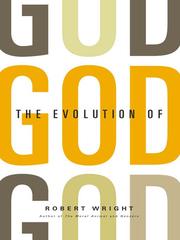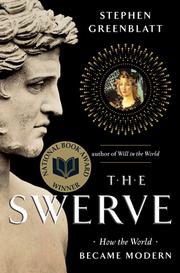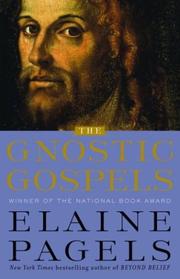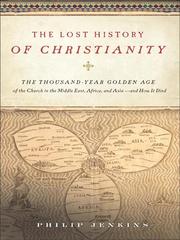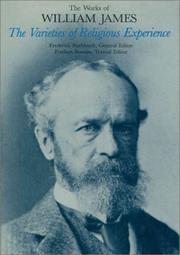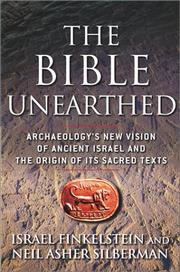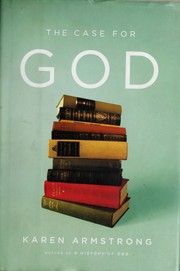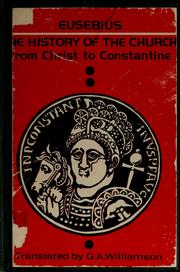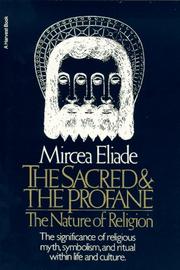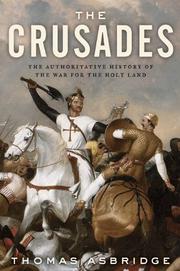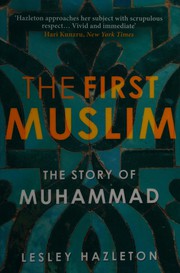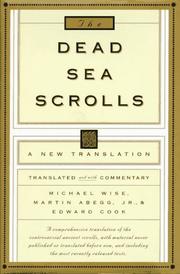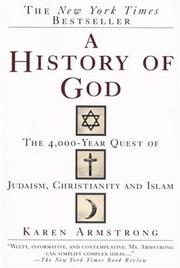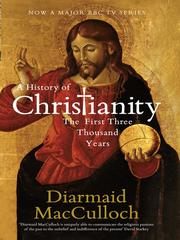Are you ready to dive into the rich and complex history of religion? Whether you’re a scholar, a student, or simply a curious reader, the 20 best books on religious history are sure to captivate and enlighten you. From ancient civilizations to modern religious movements, these books offer a comprehensive and insightful look at the diverse tapestry of human spirituality. Join us as we explore the most compelling and thought-provoking works in the field of religious history.
Contents
- 1 20 Best Books About Religious History
- 2 The Evolution of God
- 3 The Swerve: How the World Became Modern
- 4 The Gnostic Gospels
- 5 The Reformation: A History
- 6 The Lost History of Christianity: The Thousand-Year Golden Age of the Church in the Middle East, Africa, and Asia—and How It Died
- 7 The Varieties of Religious Experience
- 8 The Bible Unearthed: Archaeology’s New Vision of Ancient Israel and the Origin of Its Sacred Texts
- 9 The Case for God
- 10 The Great Transformation: The Beginning of Our Religious Traditions
- 11 The History of the Church: From Christ to Constantine
- 12 The Sacred and the Profane: The Nature of Religion
- 13 The Crusades: The Authoritative History of the War for the Holy Land
- 14 The Darkening Age: The Christian Destruction of the Classical World
- 15 The Lost Art of Scripture: Rescuing the Sacred Texts
- 16 The First Muslim: The Story of Muhammad
- 17 The Reformation: A Very Short Introduction
- 18 The Dead Sea Scrolls: A New Translation
- 19 The History of God: The 4,000-Year Quest of Judaism, Christianity, and Islam
- 20 A History of God: The 4,000-Year Quest of Judaism, Christianity, and Islam
- 21 A History of Christianity: The First Three Thousand Years
- 22 Conclusion
- 23
- 24 Discover the Best Religion And Spirituality Books in the 2024 Updated Edition
- 25 Books about Trials: 2024 Updated Guide to Essential Reading
- 26 Books on Spanish History: 2024 Update of the Best Titles
20 Best Books About Religious History
The Evolution of God
by Robert Wright
The Evolution of God by Robert Wright is a fascinating book on religious history that traces the development of religious beliefs and the concept of God. Wright delves into the origins of religious thought, exploring how different societies and cultures have shaped their understanding of the divine over time. Through meticulous research and engaging storytelling, he examines the evolution of religious ideas and their impact on human civilization. Wright’s thought-provoking insights shed light on the complex interplay between religion, society, and human behavior. This religious history book offers a compelling and insightful perspective on the ever-changing nature of our beliefs and the role of religion in shaping our world.
The Swerve: How the World Became Modern
by Stephen Greenblatt
The Swerve: How the World Became Modern by Stephen Greenblatt is a captivating book about religious history that explores the transformative impact of a single ancient manuscript. Greenblatt skillfully narrates the story of Poggio Bracciolini, a 15th-century book hunter who unearthed Lucretius’s “On the Nature of Things.” This pivotal discovery of a forgotten text sparked a revolution in thought, challenging the prevailing religious dogma of the time and paving the way for the Renaissance and the Enlightenment. Greenblatt’s vivid storytelling and meticulous research bring to life the intellectual and cultural upheaval of the period, making this religious history book a compelling and enlightening read for anyone interested in the evolution of ideas and the shaping of the modern world.
The Gnostic Gospels
by Elaine Pagels
The Gnostic Gospels by Elaine Pagels is a captivating book on religious history that delves into the ancient texts that were excluded from the traditional Christian canon. Pagels takes readers on a journey through the discovery of the Nag Hammadi library, shedding light on the diverse interpretations of Christianity in the early centuries. Through her insightful analysis, she explores the significance of these religious history texts and their impact on the development of Christianity. The book offers a thought-provoking exploration of the different perspectives and beliefs within the early Christian community, challenging readers to reconsider their understanding of the faith’s origins. With engaging storytelling and meticulous research, Pagels presents a compelling narrative that brings to life the complexities of early Christianity and the evolution of its religious history.
The Reformation: A History
by Diarmaid MacCulloch
The Reformation: A History by Diarmaid MacCulloch is a captivating book on religious history that delves into the transformative period of the 16th century. MacCulloch provides a comprehensive and engaging account of the religious, political, and cultural upheaval that defined the Reformation. He explores the key figures, movements, and events that shaped this tumultuous era, from Martin Luther’s 95 Theses to the Council of Trent. With meticulous research and insightful analysis, MacCulloch unravels the complex interplay of theology, power, and society, illuminating the profound impact of the Reformation on Europe and the wider world. This book about religious history offers a rich tapestry of narratives, controversies, and enduring legacies, making it an essential read for anyone interested in the tumultuous and transformative forces of the Reformation.
The Lost History of Christianity: The Thousand-Year Golden Age of the Church in the Middle East, Africa, and Asia—and How It Died
by Philip Jenkins
The Lost History of Christianity: The Thousand-Year Golden Age of the Church in the Middle East, Africa, and Asia—and How It Died by Philip Jenkins is a fascinating book on religious history. Jenkins explores the rich and often overlooked history of Christianity in regions outside of Europe, shedding light on the thriving communities in the Middle East, Africa, and Asia. He delves into the complexities of the church’s growth and eventual decline in these areas, providing a fresh perspective on the global impact of Christianity. Jenkins’ meticulous research and compelling narrative make this book about religious history a must-read for anyone interested in understanding the diverse and complex story of Christianity beyond the Western world.
The Varieties of Religious Experience
by William James
The Varieties of Religious Experience, written by William James, is a seminal book on religious history that explores the diverse and profound ways in which individuals experience spirituality and faith. James, a renowned philosopher and psychologist, delves into the psychological and emotional aspects of religious life, examining the mystical experiences, conversions, and religious fervor of individuals from different cultural and historical backgrounds. Through a combination of case studies and philosophical analysis, James provides a captivating and insightful look into the religious history of humanity, shedding light on the universal and deeply personal nature of religious beliefs and practices. This book about religious history continues to be a significant and influential work in the field of religious studies, appealing to both scholars and general readers interested in the complexities of human spirituality.
The Bible Unearthed: Archaeology’s New Vision of Ancient Israel and the Origin of Its Sacred Texts
by Israel Finkelstein and Neil Asher Silberman
The Bible Unearthed: Archaeology’s New Vision of Ancient Israel and the Origin of Its Sacred Texts by Israel Finkelstein and Neil Asher Silberman is a groundbreaking book on religious history. Through meticulous archaeological research, the authors challenge traditional beliefs about the origins of the Bible and the history of ancient Israel. They present compelling evidence that the stories of the Bible were shaped by political and social forces of the time, rather than being purely divine revelations. This book about religious history offers an intriguing new perspective on the development of the sacred texts and the ancient civilizations that produced them. It is a must-read for anyone interested in exploring the intersection of archaeology, history, and religion, and for those seeking a deeper understanding of the roots of the Judeo-Christian tradition.
The Case for God
by Karen Armstrong
The Case for God by Karen Armstrong is a thought-provoking book about religious history that challenges readers to reexamine their understanding of spirituality and faith. Armstrong, a renowned scholar of religion, delves into the complexities of religious belief and practices across different cultures and time periods. Through a meticulous exploration of the religious history and the evolution of human understanding of the divine, she argues for a more nuanced and open-minded approach to spirituality. This book on religious history invites readers to consider the ways in which religious traditions have shaped human experience and offers valuable insights into the nature of belief and the divine. Whether you are deeply religious, spiritual but not religious, or simply curious about the religious history book, Armstrong’s work is sure to stimulate meaningful reflection and dialogue.
The Great Transformation: The Beginning of Our Religious Traditions
by Karen Armstrong
The Great Transformation: The Beginning of Our Religious Traditions by Karen Armstrong is a fascinating book on religious history that explores the origins and development of the world’s major religious traditions. Armstrong takes readers on a journey through the ancient civilizations of India, China, and the Middle East, examining the beliefs, practices, and rituals that shaped the foundations of religious history. She delves into the lives of influential figures such as Buddha, Confucius, and the prophets of the Hebrew Bible, offering insights into the cultural and social contexts that gave rise to these traditions. Through her engaging storytelling and meticulous research, Armstrong provides a comprehensive and enlightening account of the religious history that continues to influence the world today. Whether you are a scholar, a student of religion, or simply curious about the origins of our religious history, this book offers a rich and compelling exploration of the human quest for meaning and transcendence.
The History of the Church: From Christ to Constantine
by Eusebius
The History of the Church: From Christ to Constantine by Eusebius is a seminal book on religious history that chronicles the early years of Christianity. Eusebius, a fourth-century historian and bishop, provides a comprehensive account of the development of the Christian Church, from its humble beginnings with Christ to the reign of Emperor Constantine. The book about religious history is a rich source of information on the early Christian community, the persecution it faced, and its eventual rise to prominence. Eusebius offers a detailed narrative of the lives of key figures, the spread of Christianity, and the theological debates of the time. His work is not only a valuable historical document but also a testament to the enduring legacy of faith and perseverance. For those interested in religious history books, this is an essential read that provides a fascinating glimpse into the formative years of the Christian Church.
The Sacred and the Profane: The Nature of Religion
by Mircea Eliade
The Sacred and the Profane: The Nature of Religion by Mircea Eliade is a groundbreaking book on religious history that explores the fundamental nature of human religious experience. Eliade delves into the concept of the sacred and the profane, examining how these elements shape religious rituals, symbols, and myths across different cultures and time periods. Through an in-depth analysis of ancient and modern religious practices, Eliade reveals the universal patterns and structures that underlie human religious behavior. This book about religious history is essential reading for anyone seeking a deeper understanding of the role of religion in human society and the profound impact it has on individuals and communities. Eliade’s insightful and thought-provoking exploration of the sacred and the profane offers a rich and enlightening journey into the heart of human spirituality.
The Crusades: The Authoritative History of the War for the Holy Land
by Thomas Asbridge
The Crusades: The Authoritative History of the War for the Holy Land by Thomas Asbridge is a comprehensive book on religious history that delves into the tumultuous and dramatic series of religious wars that shaped the medieval world. Asbridge provides a vivid and detailed account of the Crusades, from the initial call to arms by Pope Urban II to the final fall of the last Crusader strongholds in the Levant. Drawing on a wealth of primary sources, he offers a compelling narrative that brings to life the battles, personalities, and religious fervor that defined this era. With meticulous research and engaging prose, this book about religious history sheds light on the complex motivations and consequences of the Crusades, making it an essential read for anyone interested in religious history.
The Darkening Age: The Christian Destruction of the Classical World
by Catherine Nixey
The Darkening Age: The Christian Destruction of the Classical World by Catherine Nixey is a captivating book on religious history that delves into the tumultuous period when Christianity rose to power and the classical world was plunged into darkness. Nixey skillfully charts the destructive impact of religious zeal on the once-flourishing culture of the ancient world, as temples were looted, libraries were burned, and the pursuit of knowledge was suppressed. With meticulous research and engaging storytelling, Nixey brings to life the clash between paganism and Christianity, shedding light on the widespread destruction and censorship that accompanied the rise of the new faith. The religious history book offers a thought-provoking exploration of the power struggles and cultural upheavals that shaped the transition from the classical era to the early medieval period, making it a must-read for anyone interested in the intersection of religion, culture, and history.
The Lost Art of Scripture: Rescuing the Sacred Texts
by Karen Armstrong
The Lost Art of Scripture: Rescuing the Sacred Texts by Karen Armstrong is a captivating book on religious history that delves into the significance of sacred texts in various religious traditions. Armstrong explores the role of scripture in shaping human culture, ethics, and spirituality, drawing from her extensive knowledge of religious traditions around the world. She argues that the true essence of scripture has been lost in modern interpretations, and she offers a compelling case for reengaging with these texts in a more profound and meaningful way. Through insightful analysis and engaging storytelling, Armstrong invites readers to reconsider the power and relevance of sacred texts in our contemporary world. This religious history book is a thought-provoking exploration of the timeless wisdom contained within the scriptures of different faiths.
The First Muslim: The Story of Muhammad
by Lesley Hazleton
The First Muslim: The Story of Muhammad by Lesley Hazleton is a captivating book on religious history that delves into the life of the Prophet Muhammad. Hazleton paints a vivid portrait of the man behind the legend, exploring his early years, his spiritual experiences, and the challenges he faced in bringing his message to the people of Mecca. Through meticulous research and engaging storytelling, Hazleton provides a comprehensive look at the birth of Islam and its profound impact on the world. This religious history book offers a fresh perspective on a figure who has shaped the course of history and continues to inspire millions of people around the globe. Whether you are a student of history, a seeker of knowledge, or simply a lover of compelling narratives, The First Muslim is a must-read for anyone interested in understanding the origins of Islam and the life of its founder.
The Reformation: A Very Short Introduction
by Peter Marshall
The Reformation: A Very Short Introduction by Peter Marshall is a concise and insightful book on religious history that delves into the complex and transformative period of the 16th century. It explores the key figures, events, and ideas that shaped the Reformation, from Martin Luther and the Ninety-Five Theses to the spread of Protestantism across Europe. Marshall skillfully navigates through the religious, political, and social dynamics of the Reformation, offering readers a comprehensive understanding of this pivotal moment in history. With clear and accessible writing, this book about religious history provides an engaging overview of the Reformation, making it an essential read for anyone interested in understanding the impact of religion on society and culture.
The Dead Sea Scrolls: A New Translation
by Michael O. Wise, Martin G. Abegg Jr., and Edward M. Cook
The Dead Sea Scrolls: A New Translation by Michael O. Wise, Martin G. Abegg Jr., and Edward M. Cook is a fascinating book on religious history that offers a fresh and accessible translation of the ancient Dead Sea Scrolls. These important texts, discovered in the mid-20th century, shed light on the religious and cultural landscape of ancient Judaism and Christianity. The book provides readers with a comprehensive and accurate translation of the scrolls, along with insightful commentary and background information. This authoritative work is a valuable resource for anyone interested in delving into the religious history of the ancient world. With its clear and engaging presentation, The Dead Sea Scrolls: A New Translation is a must-read for scholars, students, and anyone intrigued by the mysteries of ancient texts and their significance in religious history.
The History of God: The 4,000-Year Quest of Judaism, Christianity, and Islam
by Karen Armstrong
The History of God: The 4,000-Year Quest of Judaism, Christianity, and Islam by Karen Armstrong is a captivating book on religious history. Armstrong takes readers on a journey through the development of Judaism, Christianity, and Islam, exploring the evolution of the concept of God over 4,000 years. She delves into the religious, social, and political factors that have shaped the beliefs and practices of these major world religions. Armstrong’s insightful analysis and engaging storytelling make this book about religious history a must-read for anyone interested in understanding the complex and interconnected history of these faith traditions. With meticulous research and compelling narrative, Armstrong provides a comprehensive overview of the development of the three major monotheistic religions, making this religious history book an enlightening and thought-provoking read.
A History of God: The 4,000-Year Quest of Judaism, Christianity, and Islam
by Karen Armstrong
A History of God: The 4,000-Year Quest of Judaism, Christianity, and Islam by Karen Armstrong is a captivating exploration of the book about religious history. Armstrong delves into the origins and evolution of the three major Abrahamic faiths, tracing their development over four millennia. She examines the shifting perceptions and conceptions of the divine in Judaism, Christianity, and Islam, shedding light on the complex interplay of theology, philosophy, and culture that has shaped these religions.
This religious history book offers a comprehensive and thought-provoking account of how the idea of God has been understood and interpreted across different historical periods and cultural contexts. Armstrong’s insightful analysis and engaging narrative make this book a must-read for anyone interested in the history of religious thought and the enduring significance of these three major world religions.
A History of Christianity: The First Three Thousand Years
by Diarmaid MacCulloch
A History of Christianity: The First Three Thousand Years by Diarmaid MacCulloch is a comprehensive and engaging book on religious history that delves into the origins and development of Christianity over the course of three millennia. MacCulloch takes readers on a captivating journey through the early Christian communities, the rise of the Roman Catholic Church, the Protestant Reformation, and the global spread of Christianity. With meticulous research and insightful analysis, the author uncovers the complex and often controversial history of the world’s largest religion. This religious history book provides a deep understanding of the forces, figures, and events that have shaped Christianity into the diverse and influential faith it is today. Whether you are a devout believer or a curious scholar, this book about religious history is an essential and enlightening read.
Conclusion
In conclusion, these 20 best books about Religious History provide a comprehensive and insightful exploration of the diverse religious traditions that have shaped the world. From ancient civilizations to modern faiths, these books offer a deep understanding of the beliefs, practices, and influences that have played a pivotal role in human history. Whether you are a scholar, student, or simply curious about religious history, these books are essential additions to your reading list.
Which Religious History book is best?
The best book on Religious History can vary with personal preference, but three widely recommended titles are:
- The Evolution of God by Robert Wright,
- The Swerve: How the World Became Modern by Stephen Greenblatt,
- The Gnostic Gospels by Elaine Pagels.
Each offers valuable insights and could be a great starting point.
What are the best books to learn about Religious History?
For those looking to learn about Religious History, there is a wealth of literature that can provide a comprehensive understanding of the subject. Some of the most highly recommended books include:
- The Evolution of God by Robert Wright,
- The Swerve: How the World Became Modern by Stephen Greenblatt,
- The Gnostic Gospels by Elaine Pagels,
- The Reformation: A History by Diarmaid MacCulloch,
- The Lost History of Christianity: The Thousand-Year Golden Age of the Church in the Middle East, Africa, and Asia—and How It Died by Philip Jenkins,
- The Varieties of Religious Experience by William James,
- The Bible Unearthed: Archaeology’s New Vision of Ancient Israel and the Origin of Its Sacred Texts by Israel Finkelstein and Neil Asher Silberman,
- The Case for God by Karen Armstrong,
- The Great Transformation: The Beginning of Our Religious Traditions by Karen Armstrong,
- The History of the Church: From Christ to Constantine by Eusebius
These books offer a range of perspectives on Religious History, covering various aspects and approaches to the subject.
What are the best books on Religious History?
The best books on Religious History include:
- The Evolution of God by Robert Wright,
- The Swerve: How the World Became Modern by Stephen Greenblatt,
- The Sacred and the Profane: The Nature of Religion by Mircea Eliade,
- The Crusades: The Authoritative History of the War for the Holy Land by Thomas Asbridge,
- The Case for God by Karen Armstrong,
- The Varieties of Religious Experience by William James.
Each offers unique insights into the subject. While these books on the topic of Religious History are highly regarded, it’s important to note that any list of ‘best’ books is subjective and reflects a range of opinions.
What are the best Religious History books of all time?
Choosing the best Religious History books of all time can vary depending on who you ask, but seven titles that are often celebrated include
- The Evolution of God by Robert Wright,
- The Swerve: How the World Became Modern by Stephen Greenblatt,
- The Lost History of Christianity: The Thousand-Year Golden Age of the Church in the Middle East, Africa, and Asia—and How It Died by Philip Jenkins,
- The Case for God by Karen Armstrong,
- The History of the Church: From Christ to Constantine by Eusebius,
- The Crusades: The Authoritative History of the War for the Holy Land by Thomas Asbridge,
- and The Sacred and the Profane: The Nature of Religion by Mircea Eliade.
Each of these books has made a significant impact in the field of Religious History and continues to be influential today.

